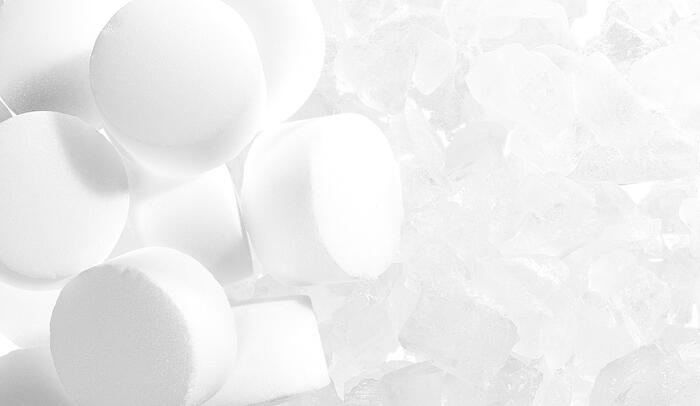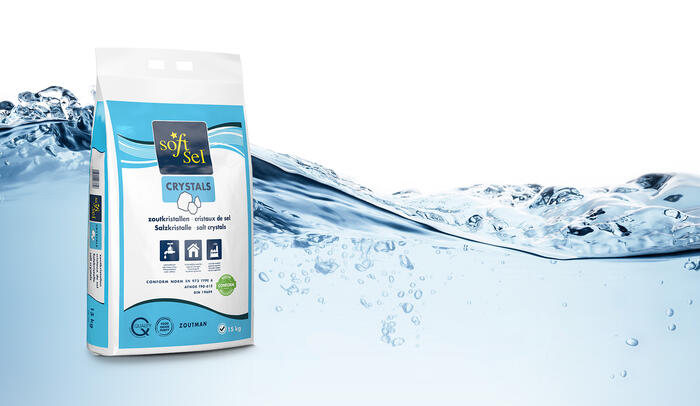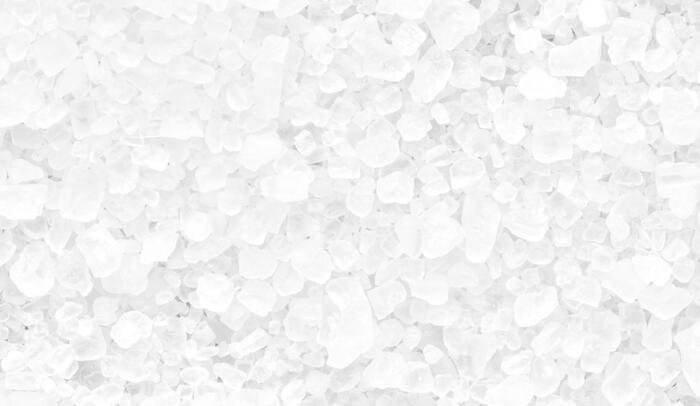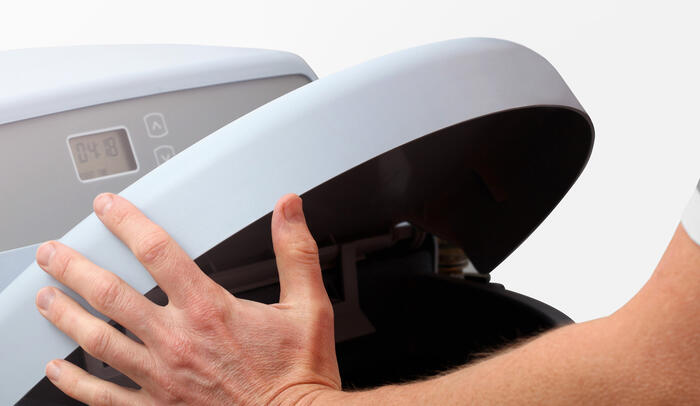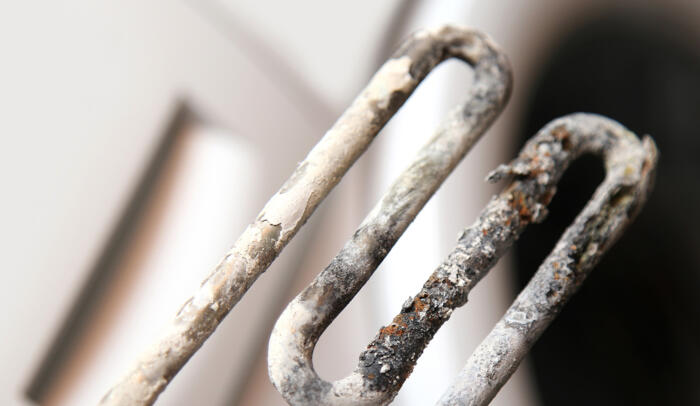SOFT-SEL® salts range: champions among water softener salts
Water: an incontrovertible resource used in the overwhelming majority of modern-day manufacturing industry. If not used as a resource to produce the end product, chances are water is involved in industrial processes in some other way …
However, the hardness of water can throw a spanner in the works and is greatly important to everyday and industrial applications. Often, the right water softener is required! But how does a water softener actually work? And why do you need salt for water softeners? You will find the answers below.
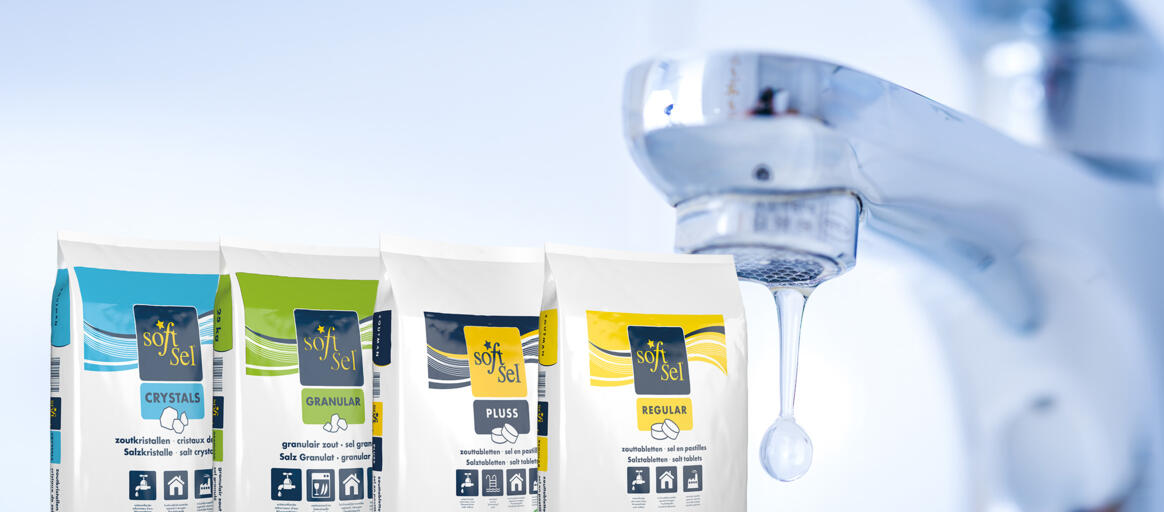
Less calcium in the water means less limescale on shower heads, taps, and inside dishwashers and washing machines, which means they need to be replaced less frequently.
Water hardness: just what exactly is ‘hard water’?
In principle, the water hardness indicates the concentration of metal ions in the water. The ‘harder’ the water, the more calcium and magnesium carbonates it contains. Hard water can deposit calcium (with everything this entails) and may have a deleterious effect on the operation of heating elements for instance.
It goes without saying that water softeners in many cases are a necessity with a view to ensuring the sustained and durable use of water processing machines at home and at the plant! The benefits of water softeners are threefold:
- Energy consumption: no calcification in water processing machines means more efficient operation and may yield energy savings of up to 15 %.
- The use of soap and detergents: softened water requires up to 50 % less soap or detergents to ensure an efficient cleaning result.
- Durability of equipment: less calcium in the water means less limescale on shower heads, taps, and inside dishwashers and washing machines, which means they need to be replaced less frequently.
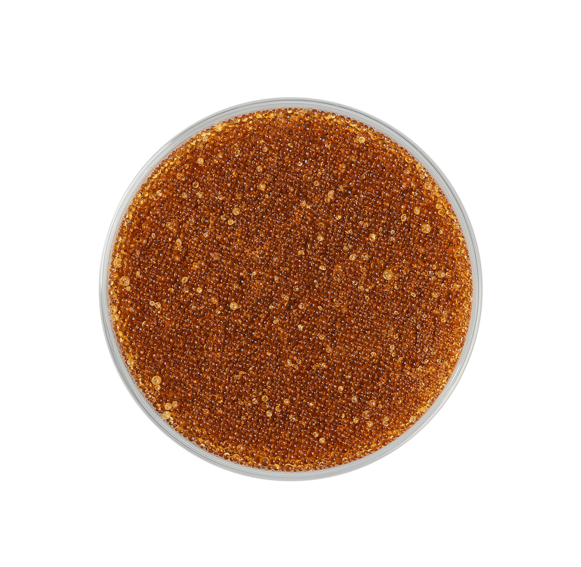
How do water softener salts and water softeners work?
In order to soften the water a water softener or a water deioniser is used. This machine first sends the water through a tank containing resins where the calcium attaches to the resin grains. This process is known as ionisation. After a while, the resins become saturated, which degrades their calcium absorption capability. As a result, the resins need to be rinsed using water softener salt. The saline solution prompts the regeneration or rinsing of the resin, causing the ion exchange resins to release all the calcium. The calcium is discharged into the sewage system via the salt water, leaving the resins free to absorb calcium again. Which explains why water softener salts are also often referred to as ‘regeneration salts’.
Which type of water softener salt should you use?
Different types of water softener salts exist, which can sometimes make it a little tricky to decide which type of salt is best suited for the application you have in mind. Below is a quick run-down of some of the products in our range.
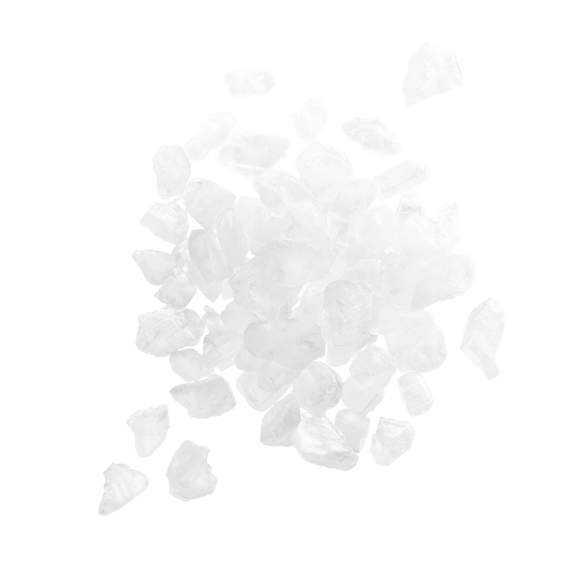
SOFT-SEL® salt crystals
In the case of drinking water and food grade water (i.e. intended to prepare food with), the SOFT-SEL® salt crystals are perfectly suited (even though they may be used in any type of industry). They are suited for all types of water softeners. Moreover, the shape and hardness of the crystals ensure regular brine production and acts to prevent clumping. The production of these crystals requires only a minimum of processing steps, making them an environmentally sound choice!
SOFT-SEL® granular salt
The SOFT-SEL® granular water softener salt is used for domestic as well as industrial water deionisers, as well as in dishwashers. All the more so as dishwashers affected by calcium build-up have a reduced service life which means they need to be replaced more often. In this context, it is important that you make sure your water softener is based on granular salt.
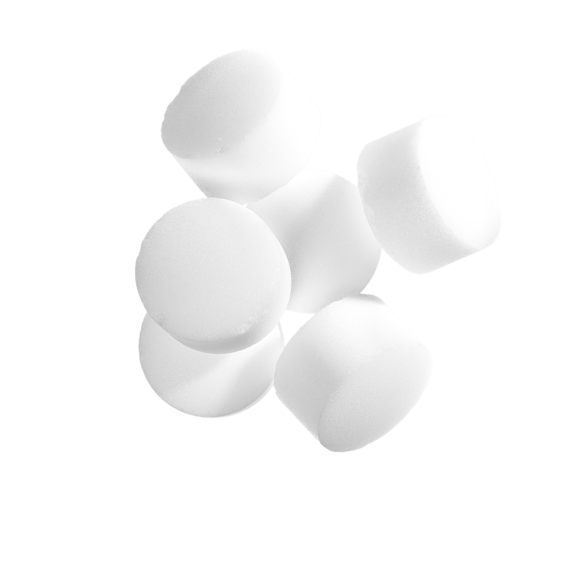
SOFT-SEL® salt tablets
The SOFT-SEL® REGULAR water softener salt tablets are also suited for all types of water deionisers in domestic and industrial environments. SOFT-SEL® PLUSS salt tablets can also be used in swimming pools using membrane electrolysis.
SOFT-SEL®: ‘rock-hard’ quality
SOFT-SEL® is the champion among water softener salts and complies with strict European quality requirements and standards, such as EN 973 Type A, DIN 19604 and AFNOR T90-616. Do not hesitate to contact us or send in a no obligation price quote request.
